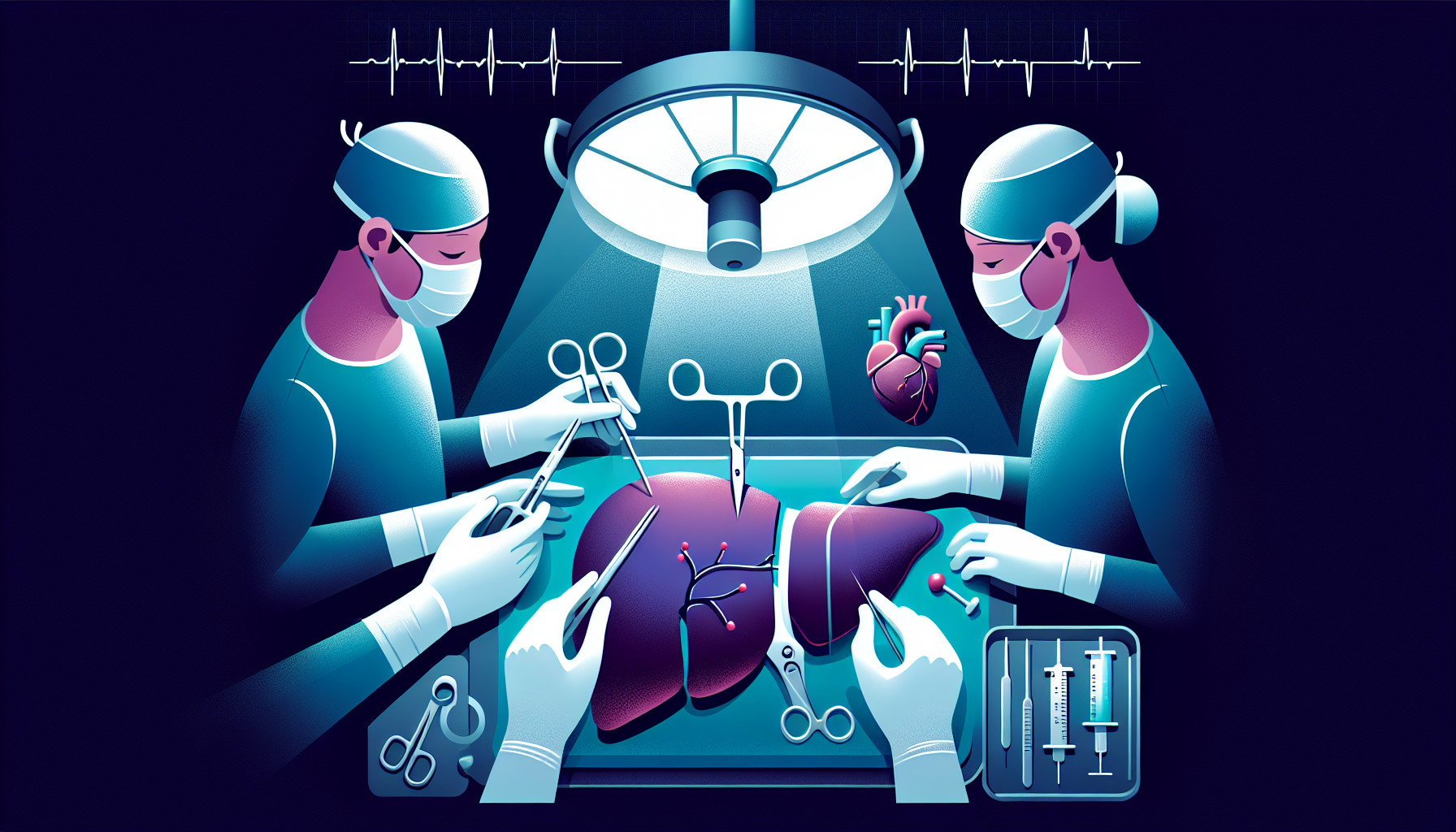Our Summary
This paper discusses the history and current state of liver transplantation in Colombia. Starting in 1979, Colombia has become one of the most active countries for this type of surgery in Latin America, despite facing issues with regulation and management of organ transplants, including a global problem of transplant tourism. The government oversees a well-organized system for organ donation and transplantation. In 2017, Colombia was fourth in Latin America for the number of liver transplants, after Brazil, Argentina, and Uruguay, performing 5.6 transplants per million people. The government created regulatory bodies to oversee transplants and ensure they are done fairly and transparently. The paper details the progression, government involvement, allocation rules, and current state of liver transplantation in Colombia.
FAQs
- When did liver transplantation begin in Colombia?
- How does Colombia rank in terms of liver transplantation activity in Latin America?
- What measures has the Colombian government taken to regulate and manage organ transplants?
Doctor’s Tip
One helpful tip a doctor might tell a patient about liver transplant is to follow a strict medication regimen post-surgery to prevent rejection of the new liver. It is crucial to take immunosuppressant drugs as prescribed by your healthcare provider and attend all follow-up appointments to monitor your progress and adjust treatment as needed. Additionally, maintaining a healthy lifestyle with regular exercise and a nutritious diet can help support the function of the new liver and overall recovery.
Suitable For
Patients who are typically recommended for liver transplant are those with end-stage liver disease, such as cirrhosis, acute liver failure, or liver cancer. These patients may have exhausted all other treatment options and have a poor prognosis without a transplant. The decision to recommend a liver transplant is made by a multidisciplinary team of healthcare professionals, including hepatologists, transplant surgeons, and transplant coordinators, who evaluate the patient’s overall health, liver function, and likelihood of survival post-transplant. Additionally, patients must meet specific criteria set by the transplant center, such as being physically and mentally able to undergo surgery and adhere to post-transplant medications and follow-up care.
Timeline
Before Liver Transplant:
- Diagnosis of liver disease: Patients may experience symptoms such as fatigue, jaundice, abdominal pain, and swelling.
- Evaluation: Patients undergo extensive medical tests to determine the severity of their liver disease and assess their overall health for transplant eligibility.
- Waiting for a donor: Patients are placed on a waiting list for a suitable donor liver, which can vary in length depending on factors such as blood type and severity of illness.
After Liver Transplant:
- Surgery: The patient undergoes a complex surgical procedure to remove their diseased liver and replace it with a healthy donor liver.
- Recovery: Patients typically spend several days to weeks in the hospital recovering from surgery and monitoring for complications.
- Rehabilitation: Patients undergo physical therapy and other treatments to help them regain strength and function after surgery.
- Follow-up care: Patients require lifelong monitoring and medication to prevent rejection of the transplanted liver and manage any complications that may arise.
Overall, a liver transplant can greatly improve the quality of life and longevity for patients with end-stage liver disease, but it requires ongoing care and monitoring to ensure the best outcomes.
What to Ask Your Doctor
Some questions a patient should ask their doctor about liver transplant include:
- Am I a candidate for a liver transplant?
- What is the success rate of liver transplants in my specific case?
- What are the potential risks and complications associated with a liver transplant?
- How long is the waiting list for a liver transplant in my area?
- What is the average recovery time after a liver transplant?
- What medications will I need to take before and after the transplant?
- How will my life change after receiving a liver transplant?
- What kind of support system will I need post-transplant?
- How often will I need to follow up with my transplant team after the surgery?
- Are there any alternative treatments to a liver transplant that I should consider?
Reference
Authors: Salinas Nova MA, Rojas Meneses Á, Restrepo Gutierrez JC. Journal: Liver Transpl. 2019 Apr;25(4):658-663. doi: 10.1002/lt.25427. Epub 2019 Mar 14. PMID: 30734995
